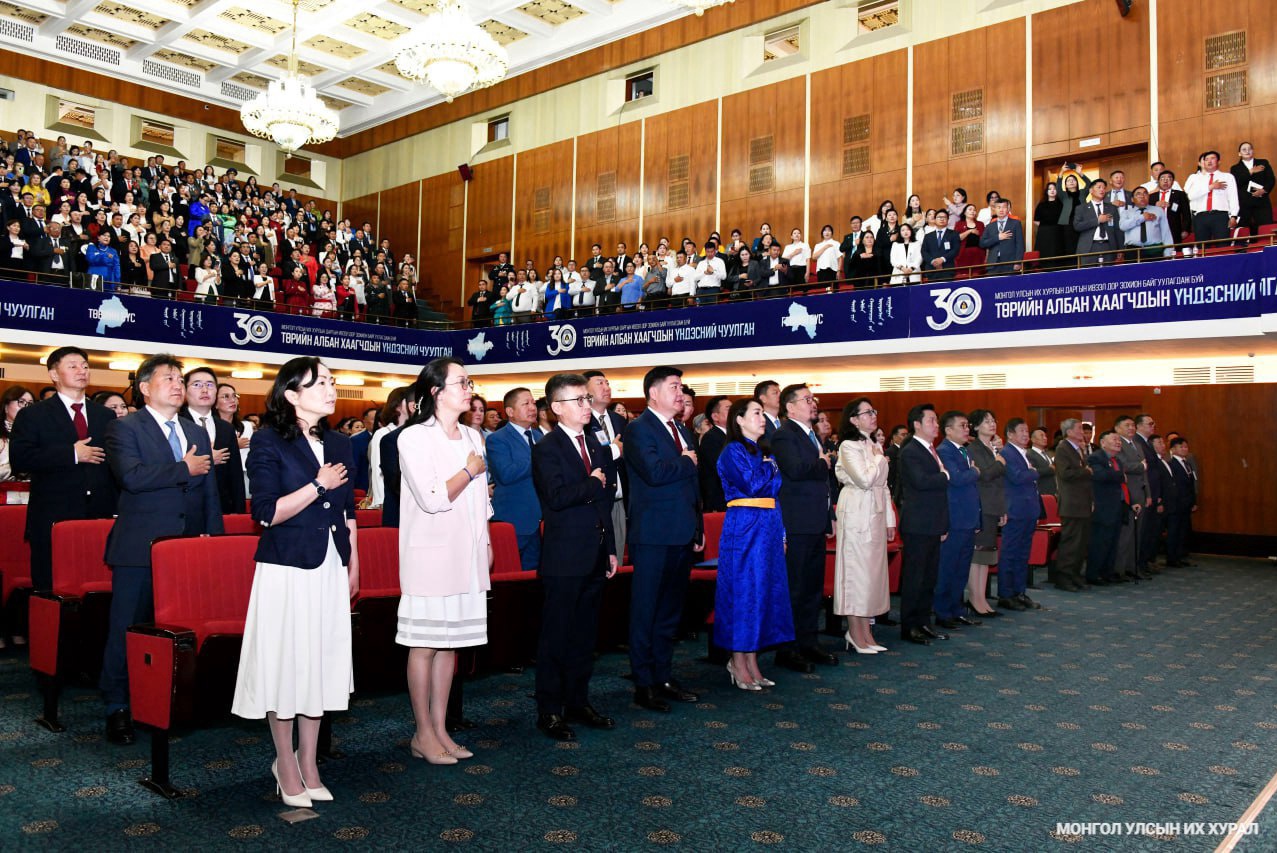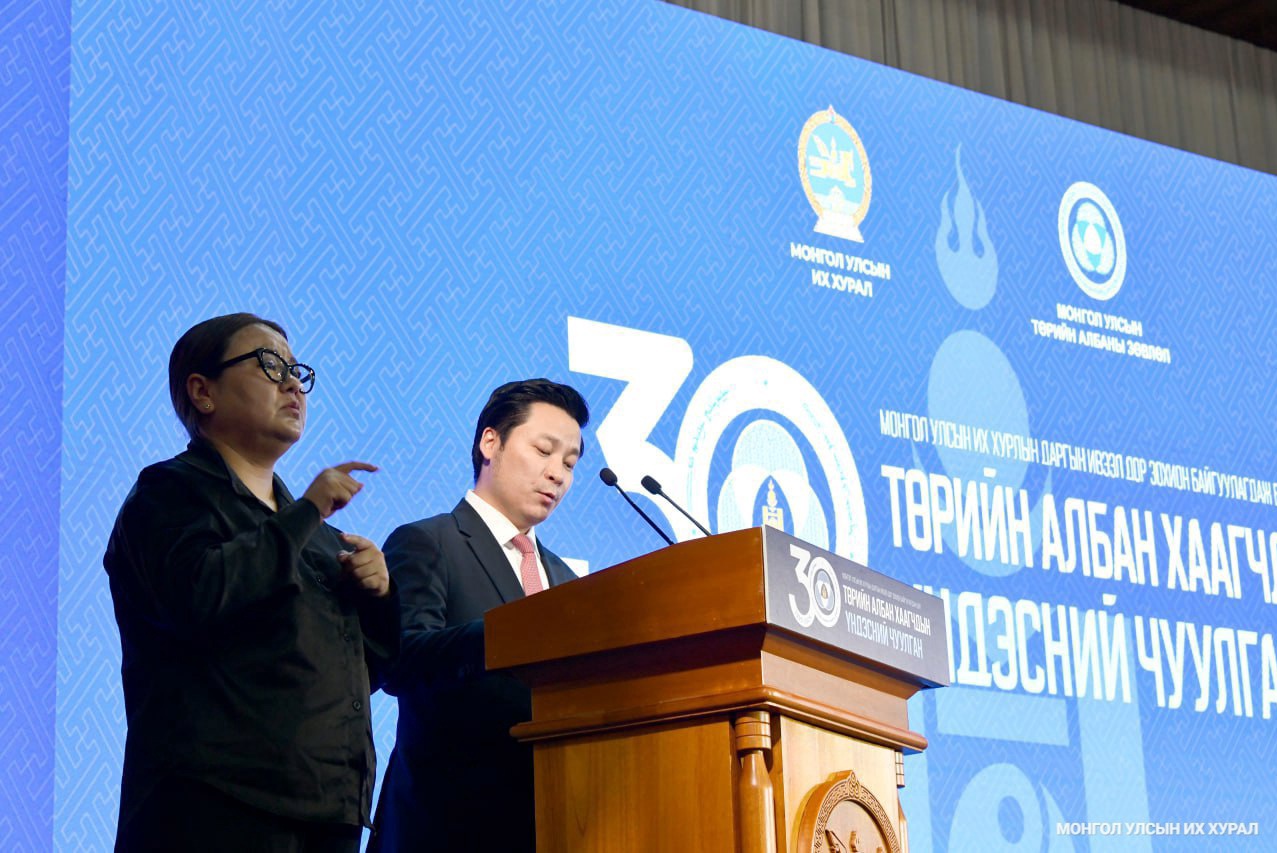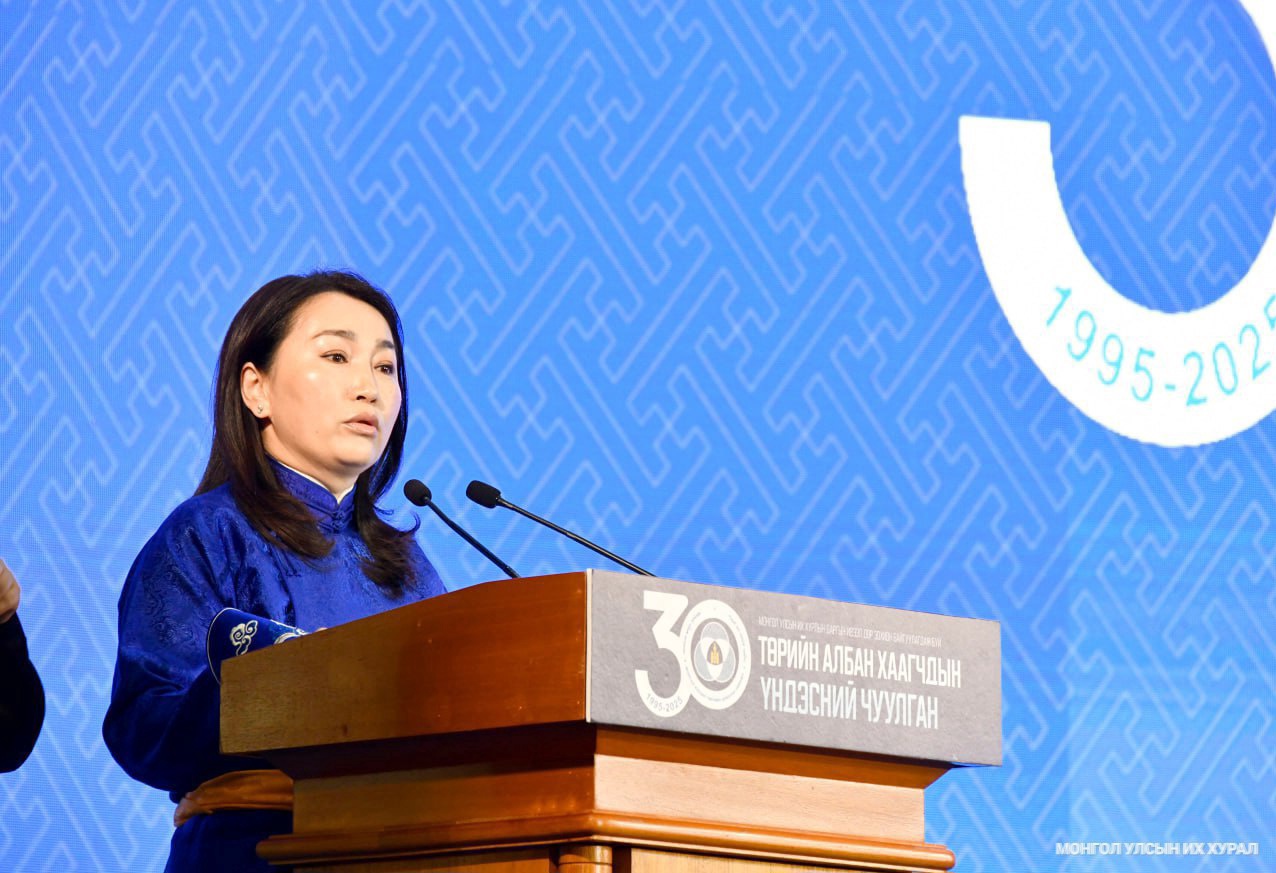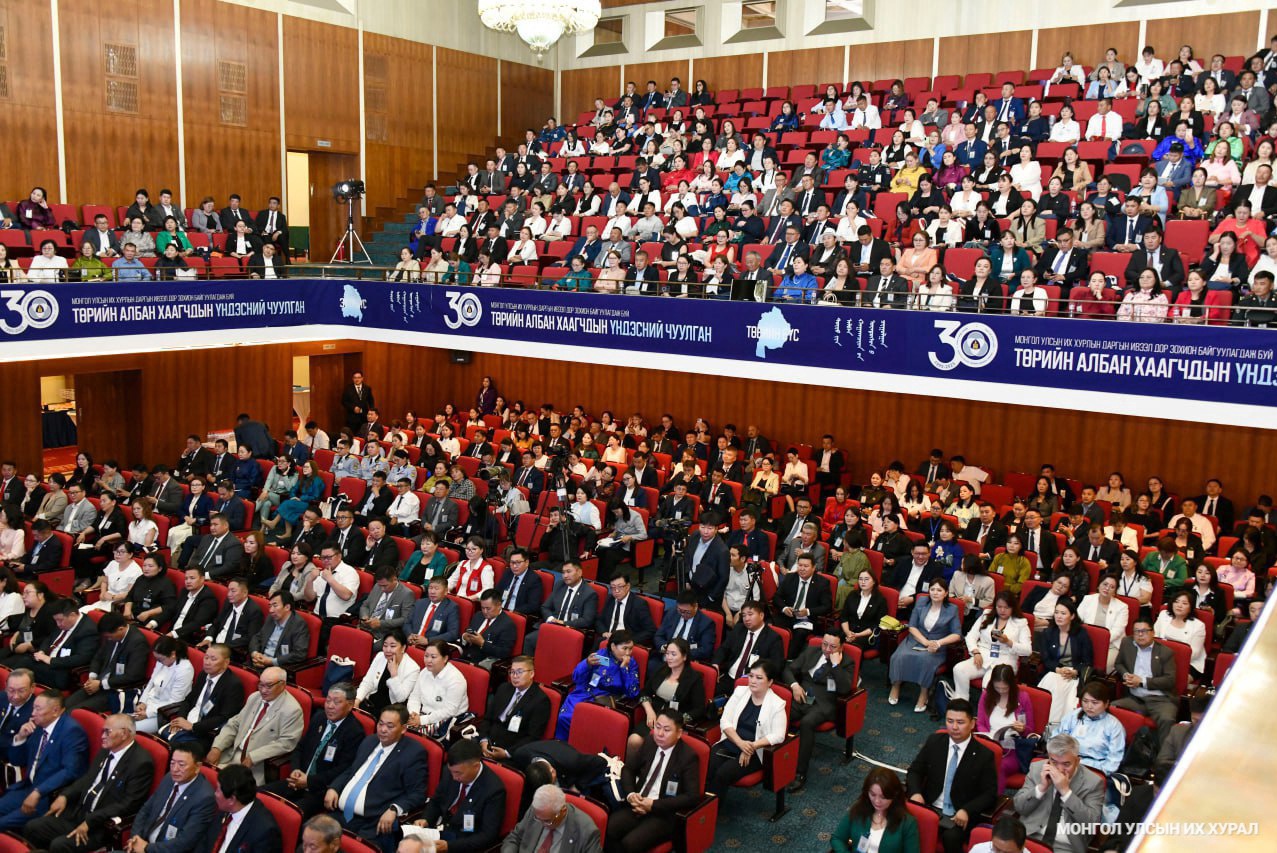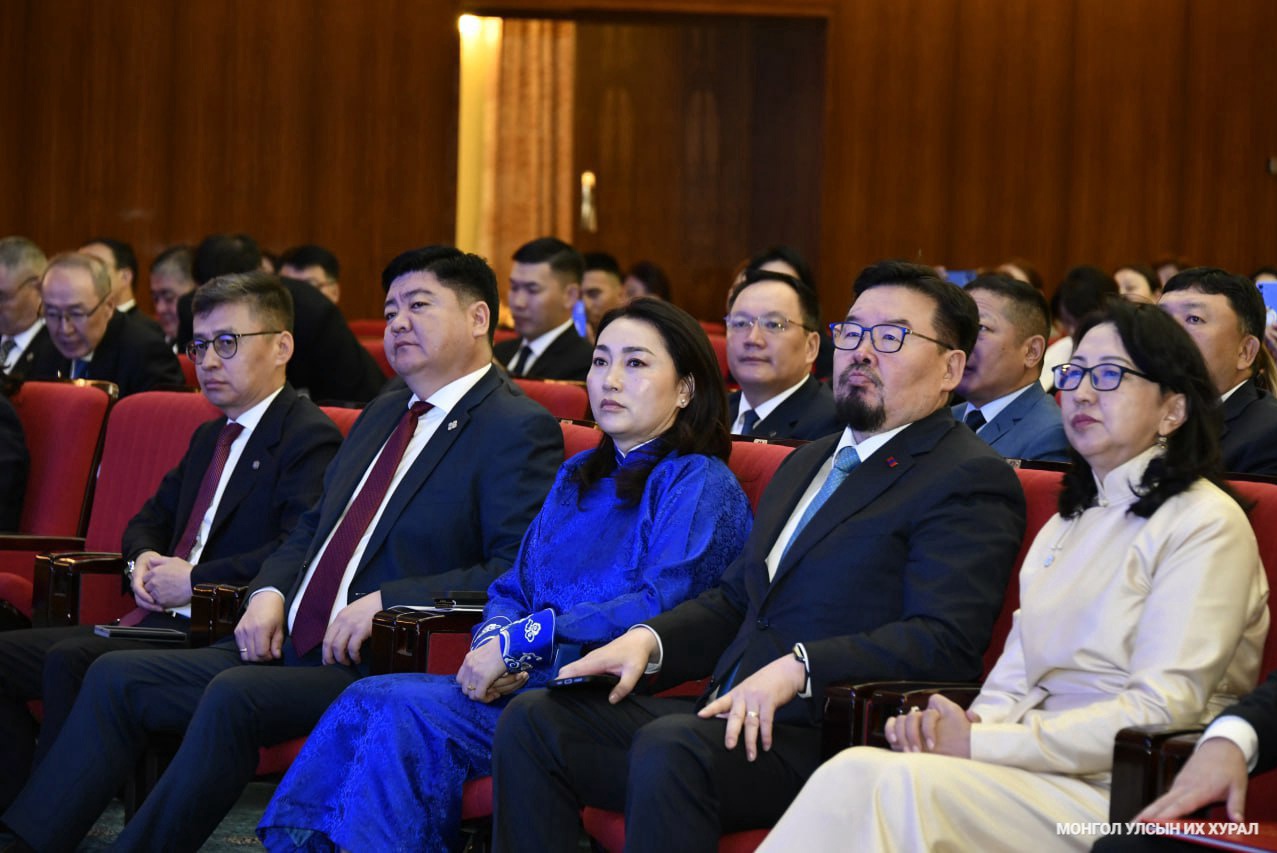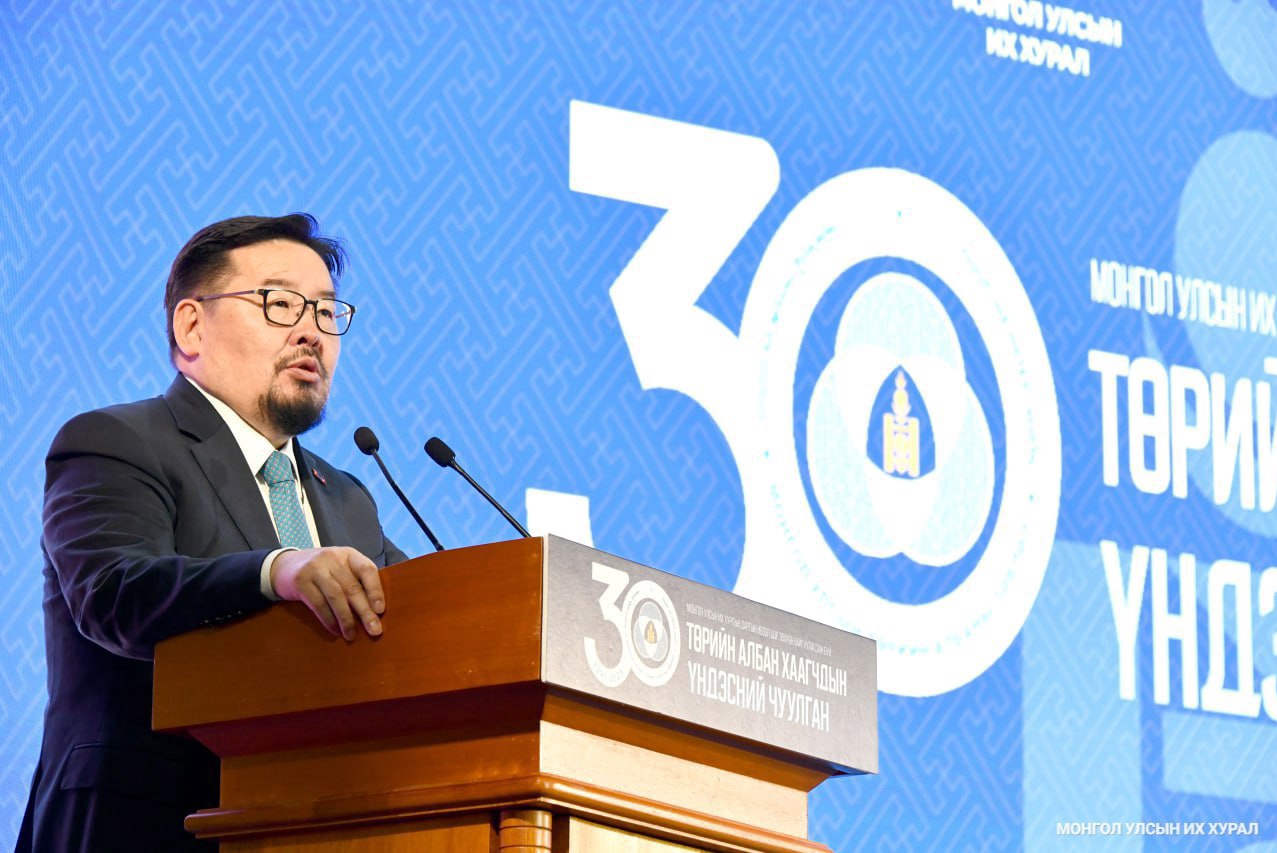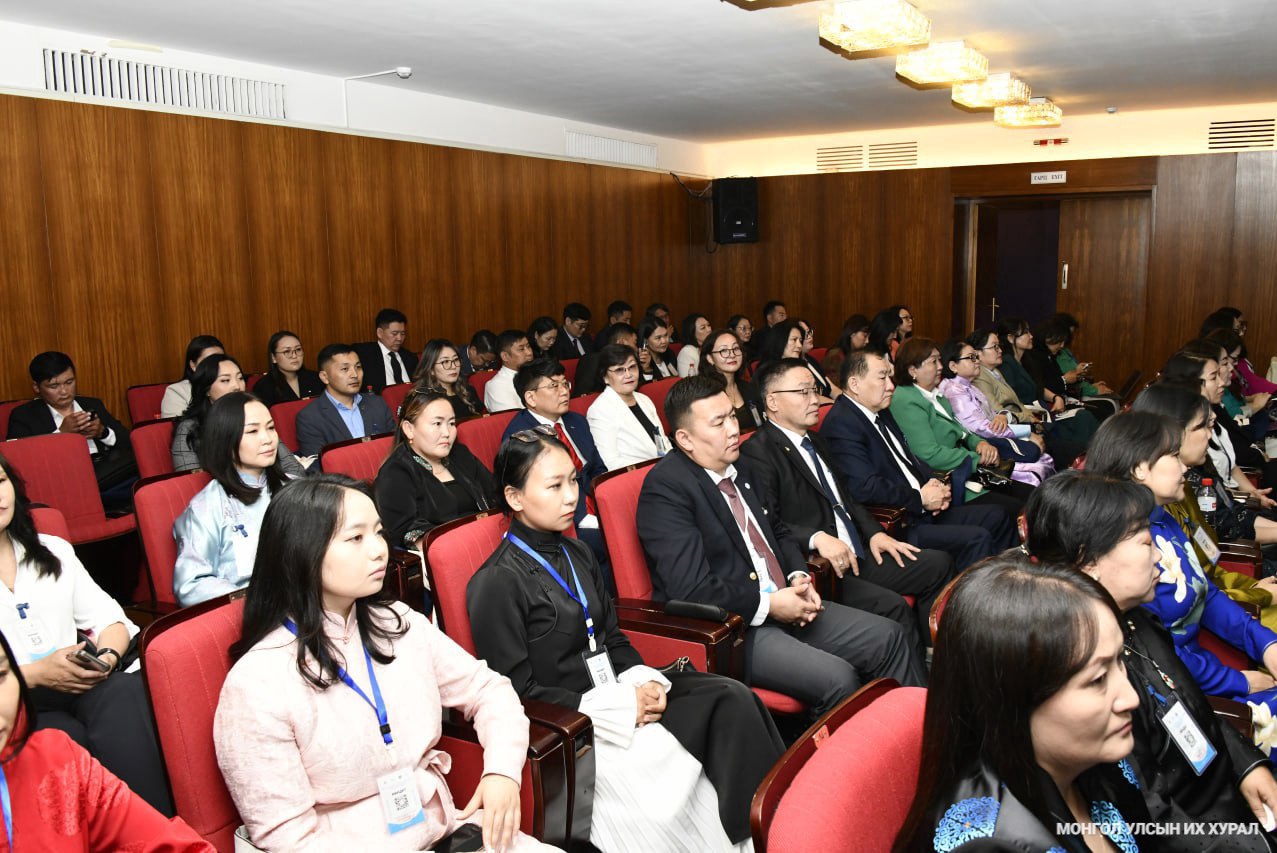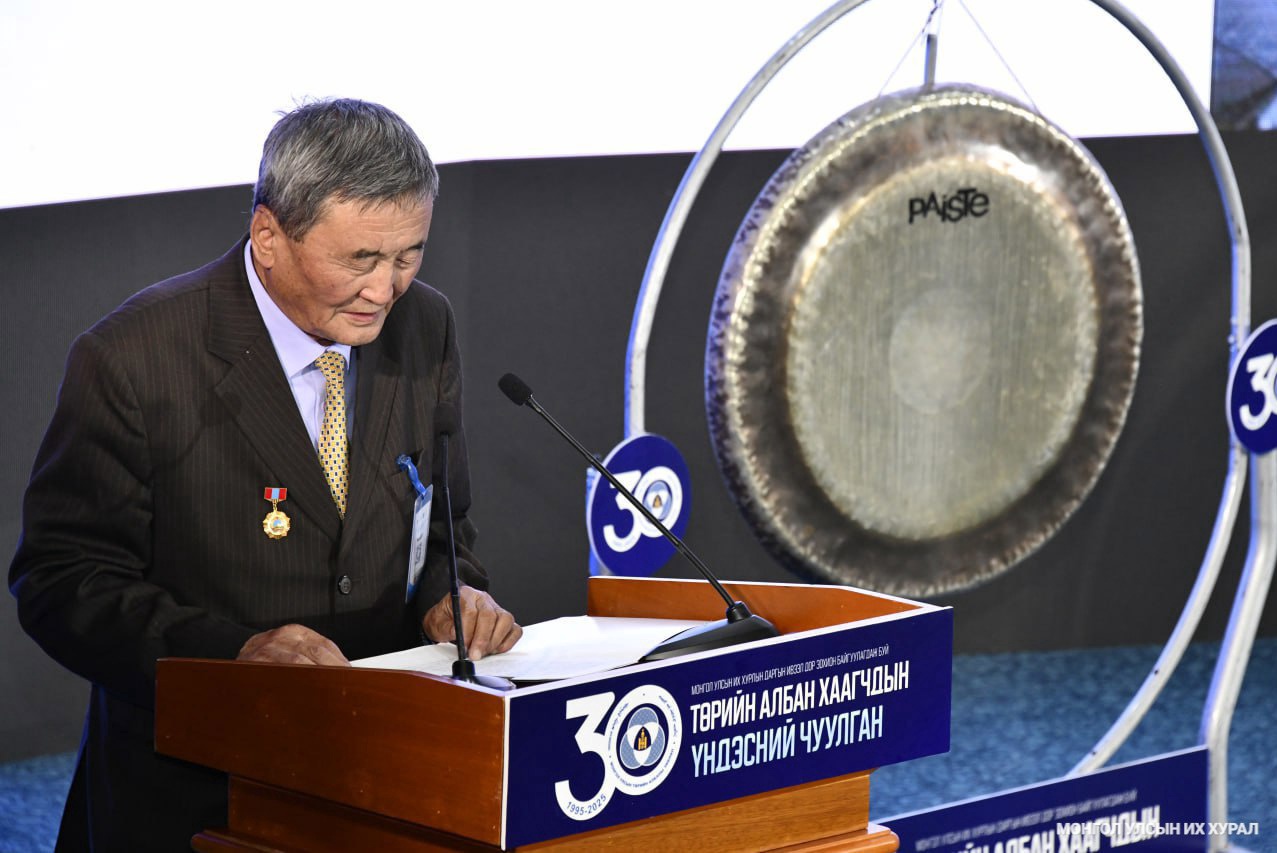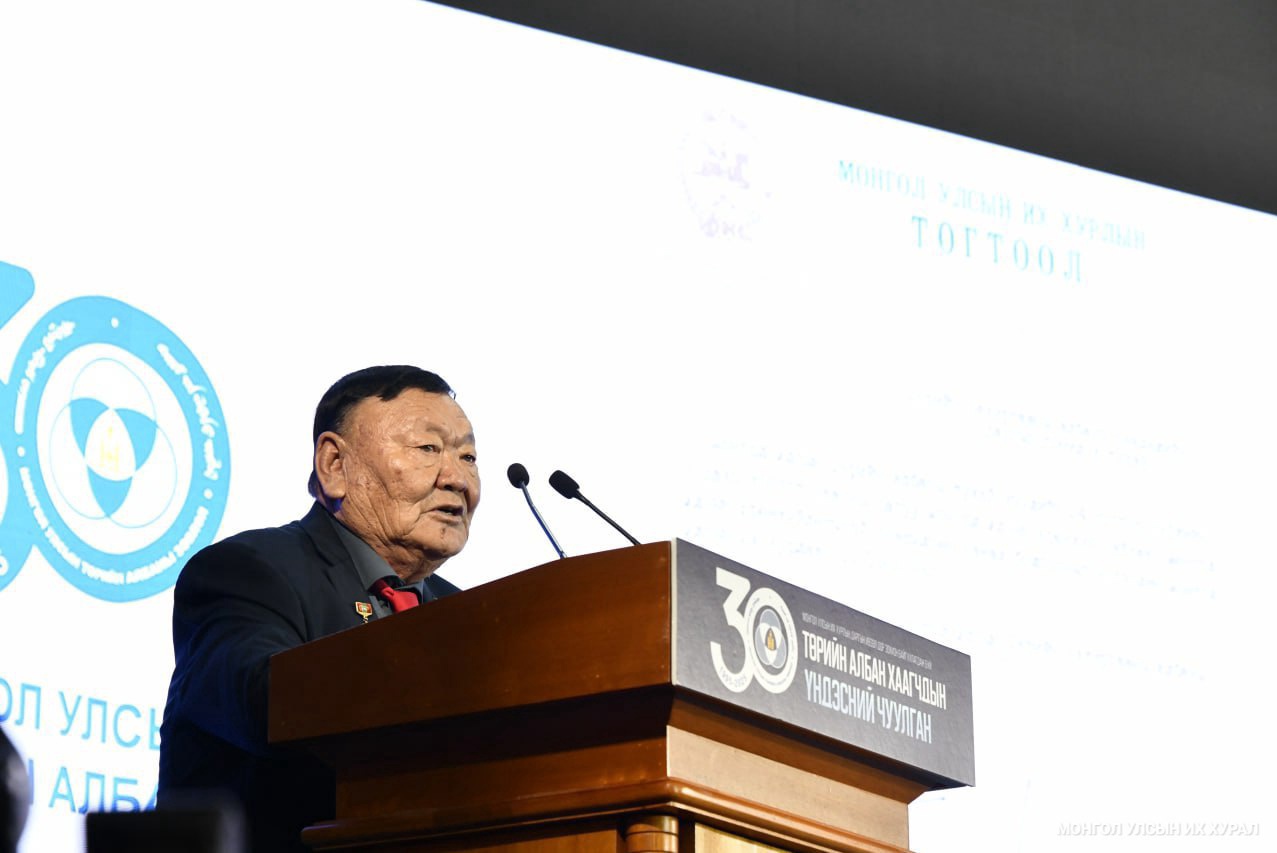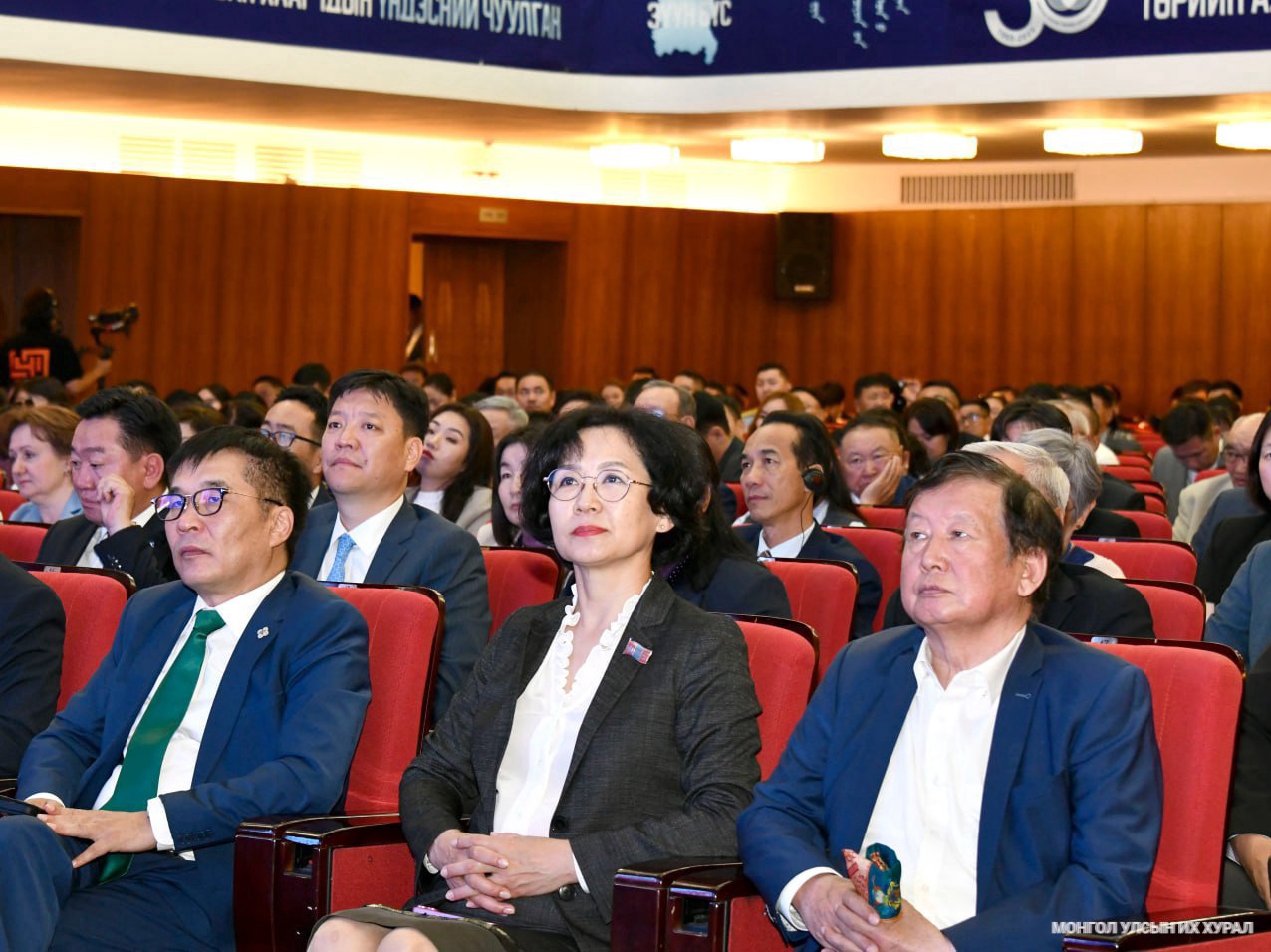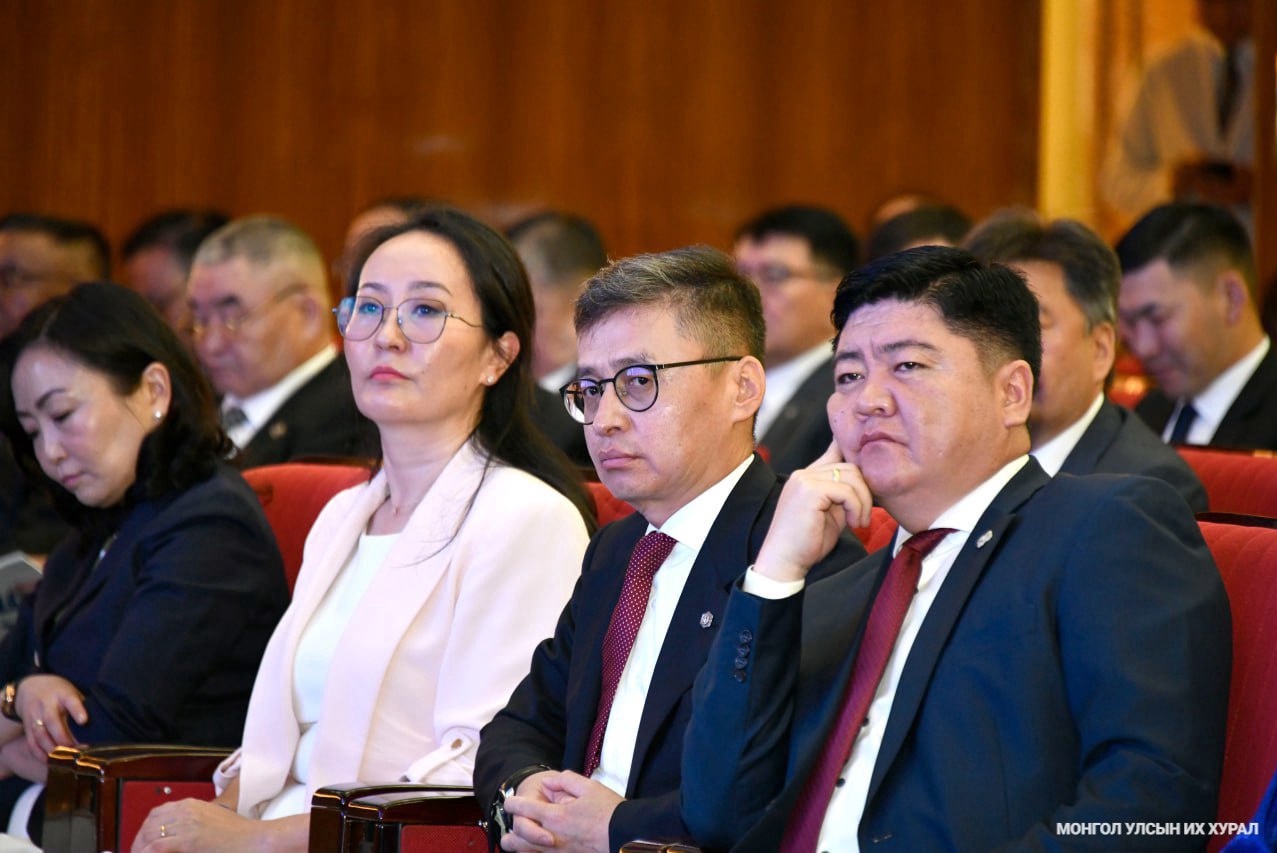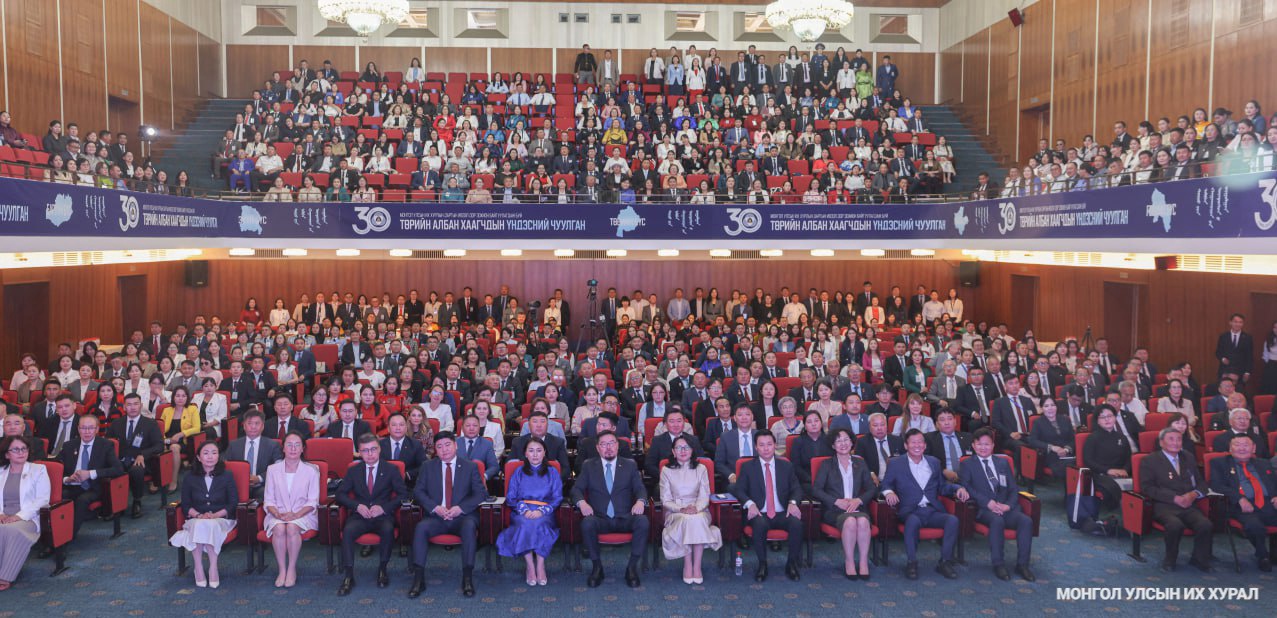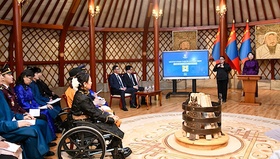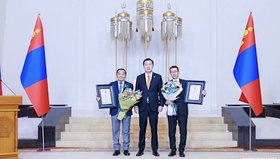Today, July 3, 2025, marks Civil Service Day and the 30th anniversary of the Central Government Agency for Civil Service — the Civil Service Council of Mongolia.
Under the patronage of the Chairman of the State Great Hural (Parliament) of Mongolia, the National Convention of Civil Servants is being held at the State Palace. The event brings together 800 participants, including representatives from the capital city, 21 provinces, 330 soums, ministries, agencies, and government institutions, as well as guests of the International Forum on “Civil Service of Mongolia and International Cooperation and Experience.”
The National Convention was opened by the first members of the Civil Administrative Service Council—N. Chadraabal, Honored Lawyer of Mongolia, and Kh. Shaandar, Honored Public Servant of Mongolia.
A. Uilstuguldur, Chief of Staff of the Office of the President, delivered the greeting message from President U. Khurelsukh to the delegates of the National Convention and presented it to L. Tsedevsuren, Chair of the Civil Service Council.
In his message, the President emphasized, “Every civil servant must have a deep awareness that they serve the Mongolian state, the people, and the national interests. They must remain free from gossip and slander, uphold unity and harmony, and always honor and safeguard the dignity of the civil service. They are expected to leave a righteous and just legacy in the history of the Mongolian state.”
The greeting message from Chairman of the State Great Hural (Parliament) of Mongolia, D. Amarbayasgalan, was delivered by Deputy Chairwoman Kh. Bulgantuya. She stated, “I extend my heartfelt congratulations on the occasion of the 30th anniversary of the establishment and development of the modern civil service, following Mongolia’s transition to a democratic society.
Our country, with its deep-rooted statehood tradition, transitioned to a market economy in 1990 and subsequently adopted a new democratic Constitution in 1992. In this context, and in line with global development trends, the Law on Civil Service, one of the first specialized laws to regulate social relations, was enacted in 1994, laying the foundation for the modern civil service system.”
“Since that time, the development and reform of the civil service have continued without interruption, with ongoing efforts to strengthen a merit-based civil service. In 1994, Mongolia had 141,500 civil servants, with an average monthly salary of 24,000 MNT and a GDP per capita of 292,800 MNT (approximately USD 654). By 2024, the number of civil servants had increased to 226,800, the average salary had reached 2.3 million MNT, and GDP per capita had risen to 23.4 million MNT (around USD 6,898). Over the same period, Mongolia’s total population grew from 2,242,998 to 3,544,835, and the gross domestic product (GDP) expanded from 651.4 billion MNT to 80 trillion MNT.
I would like to emphasize that Mongolia’s social and economic development over the past 30 years is the direct result of the tireless dedication of generations of civil servants. I express my sincere gratitude to all past and present civil servants who have ensured policy continuity and made valuable contributions to the progress of our nation.”
She also highlighted that, following the 2023 constitutional amendments, the newly reconstituted State Great Hural (Parliament) of Mongolia, now composed of 126 members, is working to establish a legal environment that is people-centered, upholds human rights, keeps pace with the times, and meets modern needs and requirements—guided by the policy of the “Three Advancements.”
In this context, she emphasized the importance of improving the unified system of public administration and the need to develop a people-centered civil service based on 30 years of experience, achievements, and lessons in modern governance.
In his speech, Prime Minister of Mongolia, G. Zandanshatar stated, “Reform must breathe through the present, not the past, and strive toward the future. That is why the new Government has declared a reform agenda aimed at shaping an efficient and productive state. In today’s rapidly changing global environment—with sweeping transformations across societies and political systems—the role, functions, characteristics, and significance of the civil service must constantly evolve.”
He called on the delegates of the National Convention to take the lead in advancing these reforms.
According to Resolution No. 62 of the State Great Hural (Parliament) of Mongolia, dated July 3, 1995, L. Lingov, N. Chadraabal, and Kh. Shaandar were appointed as the first full-time members of the Council of State Administrative Service of Mongolia.
During the convention, Ts. Sandag-Ochir, Member of Parliament and Chair of the Standing Committee on State Structure, extended his respects and congratulations to these founding members of the central civil service authority, according to the Press and Public Relations Department of the State Great Hural.

 Eng
Eng  Монгол
Монгол